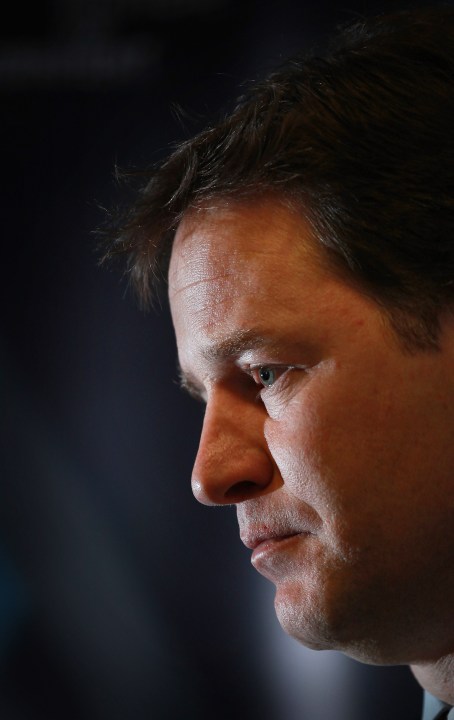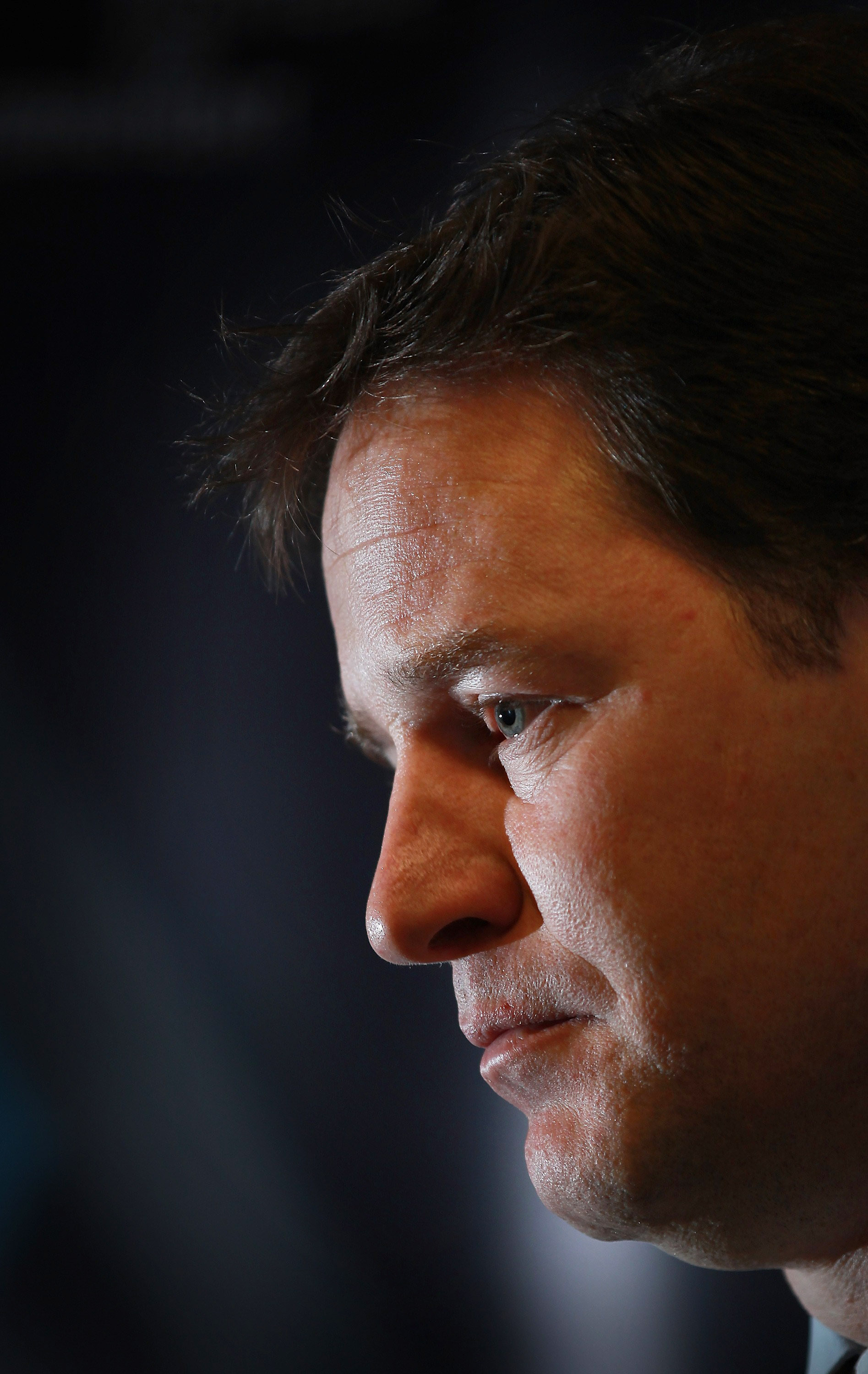 As the Lib Dem conference approaches, we can expect some briefing from their spin
doctors claiming to have “wrecked” all manner of Tory policies. It’s a petty and ugly phase of the coalition. Last year: nuptial bliss. This year: one partner throwing china at the other.
The next phase is divorce, which is why I’m surprised to see the Lib Dems accelerating the process by today’s divisive briefings. Especially on something as self-defeating as school reform.
As the Lib Dem conference approaches, we can expect some briefing from their spin
doctors claiming to have “wrecked” all manner of Tory policies. It’s a petty and ugly phase of the coalition. Last year: nuptial bliss. This year: one partner throwing china at the other.
The next phase is divorce, which is why I’m surprised to see the Lib Dems accelerating the process by today’s divisive briefings. Especially on something as self-defeating as school reform.
We are told that “Nick Clegg defeats bid by Michael Gove to let free schools make profits”. This is nonsense. As I write in this week’s Spectator, Gove is not pushing for profit-seeking schools, to the disappointment of some inside Number 10. Gove wants to pick his battles, and thinks overcoming regulatory barriers such as planning and ECHR complaints (you’d be amazed) are the priorities. I also wrote that Clegg has been given a veto over profit-seeking schools, and has made clear that he’ll use it. But he’d be vetoing something that Gove had already ruled out.
The Lib Dem contribution to free schools is to introduce a “pupil premium” so kids from disadvantaged areas are worth more to teach. David Laws championed this, in particular. It means that profit-seeking schools – the type that exist in Sweden – would have a huge incentive to expand in the areas of Britain that most need them. Indeed, on Coffee House on Friday we ran an interview with a Swedish state secretary explaining how profit-seeking schools are the most socially just because they are programmed to go wherever demand is highest.
If Clegg vetoes profit-seeking schools, then he will torpedo his own vision of free schools flourishing in high-deprivation areas. No one will be claiming the incentives his party so thoughtfully laid out. Clegg is blowing a potentially revolutionary Lib Dem policy out of the water, because he thinks he can dress it up as a Tory policy.
This is all the more extraordinary given that Gove is perhaps the most pro-Lib Dem member of the Cabinet, saying – in private and in public – that Clegg’s party has proved a strong ally
in the cause of school reform. He’s worked well with Sarah Teather, his Lib Dem deputy. I was at the Lib Dem conference last year and saw her bravely take on party activists about free schools in a fringe meeting.
The audience seemed to be on the side of local authority bureaucrats and the unions. Teather told them the Lib Dems believe in devolution:
It was one of those moments that made me forget my own doubts about coalition: these two parties, I thought, are indeed united in radical change.“there are some people who are not only battling with the dead hand of Whitehall, but also the dead hand of local government. I know that’s not a popular message amongst Lib Dems but it’s true.”
No longer. Over 1,000 schools have now been given independent “Academy” status, and I blogged recently about how some of the new schools – like Harris Academies – are making incredible progress. Yet I gather one idea being discussed by by the Lib Dems is to put all the Academies back under local authority control, once the new school management have done their work. This would, in a stroke, destroy all the progress – just as the hundreds of Grant Maintained schools were put back under council control under Labour with calamitous results.
It gets worse. In private, Lib Dems are now talking about a “battle” with Gove, and coming up with policy ideas that I suspect would appal Teather and David Laws. One of these ideas is restricting new schools to areas of deprivation, or population bulges. I’m told this won’t even be discussed inside the Department for Education, far less implemented. The coalition does indeed seem to be entering a new, deeply destructive phase. And one that can only further damage the stature of the Lib Dems. Clegg may regret his tuition fees u-turn, but turning on his coalition partners over school reform won’t make things better. Such behaviour will only cement the idea of his being a turncoat.
All this is a reminder of just how fragile the schools revolution is. In schools policy, pupils are never the first priority. Ideology – in Clegg’s case, opposition to the word “profit” – is put ahead of evidence, which shows that profit delivers. CoffeeHousers can read what Mikhael Sandstrom has to say and decide for themselves. Clegg was right to make poor pupils worth more to school operators. But if he blackballs the idea of commercial school operators, there’s no point. This isn’t Clegg vs Gove – it’s Clegg vs Clegg. Yes, he’ll hurt himself. But the main losers will be the pupils in deprived areas, whom only profit-seeking schools were likely to reach.








Comments